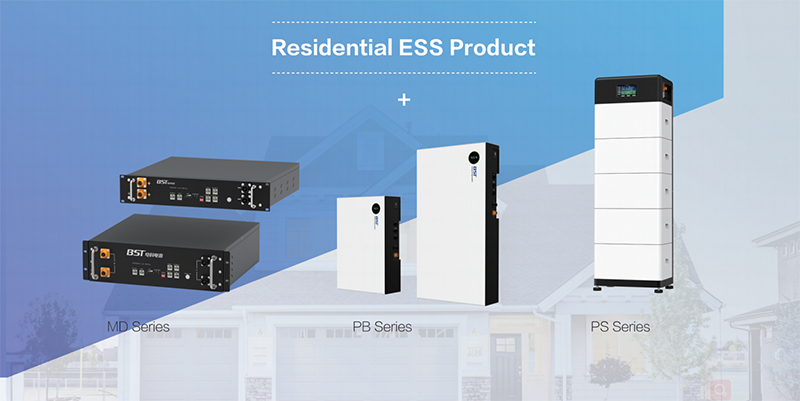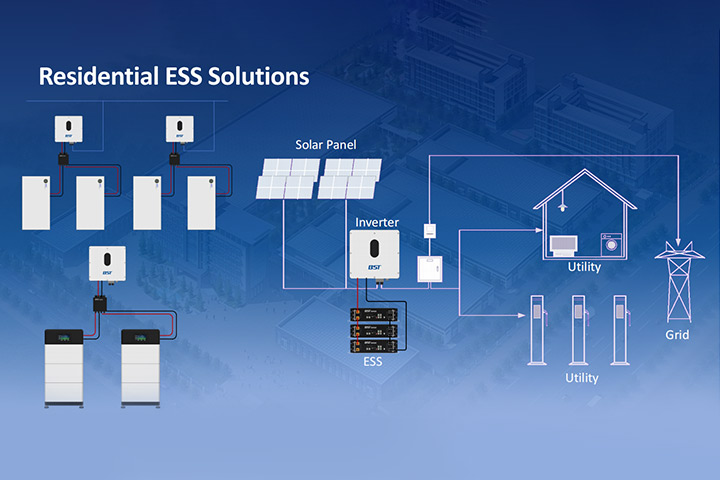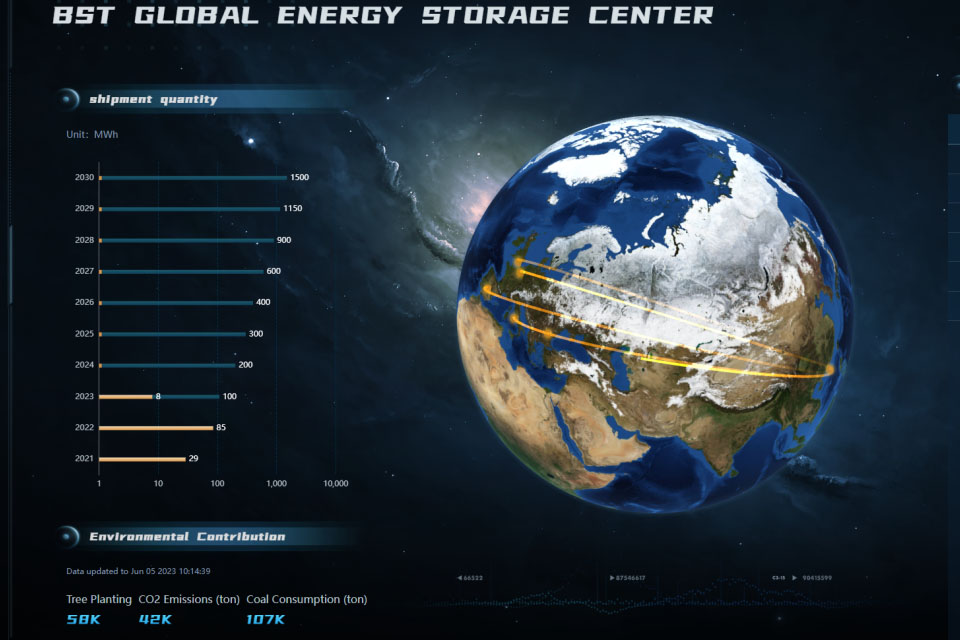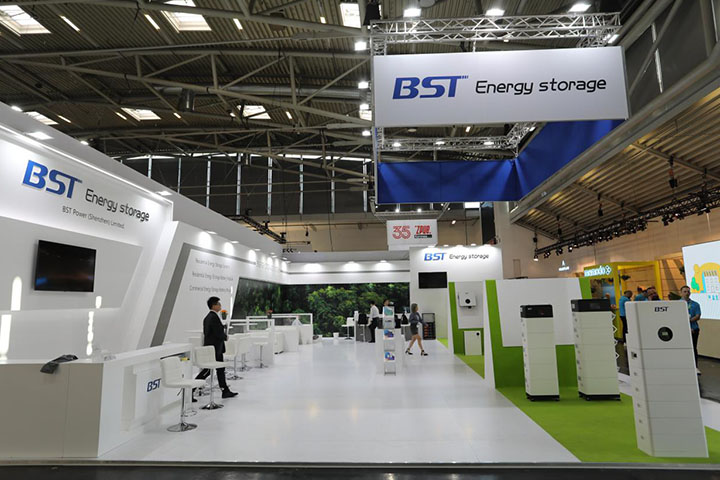Are you struggling to find the right energy storage solution for your home? Then let me help you using my 22 years of experience as a home energy storage system expert.
In this article, I will discuss the types of home energy storage solutions, their benefits, and many more. So, read on to find out!
What Is Residential Energy Storage?
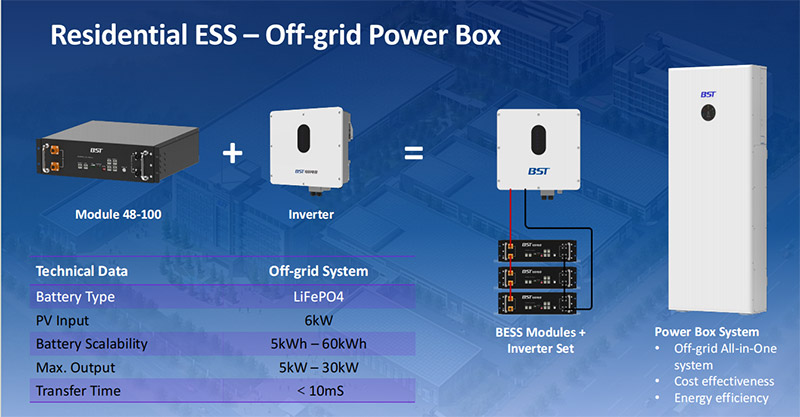
Furthermore, you can find these energy storage solutions in the form of batteries. They have different features and specifications. For instance, some batteries are more efficient than others. On the contrary, some batteries have more heat resistance compared to other batteries.
Benefits Of A Residential Energy Storage
- A residential energy storage system uses solar panels instead of fossil fuels to generate electricity. Consequently, there is a reduced carbon footprint, which promotes environmental sustainability.
- A home storage solution allows you to use electricity for 24 hours without relying on a municipal power grid. Moreover, you can use these energy storage systems even when there are blackouts.
- The residential energy storage system supplies the stored energy from the grid on demand. As a result, you can get the power supply equally without any disruption.
How Residential Energy Storage Works?
Picture: Residential energy storage mechanism diagram
Step 1: At first, the solar panels take energy from the sunlight during the day.
Step 2: Then, an alternating current generator converts the solar energy into current energy.
Step 3: The current generator is connected to the battery rack. So when home appliances are powered, the excess energy travels back to the battery rack, which stores the energy there.
Step 4: The battery rack supplies the energy to the household when the sun is out. So, you can use this energy during peak hours or when the temperature is high. Moreover, you can use this energy storage system anytime without facing blackouts.
Factors To Consider Before Choosing A Residential Energy Storage
Battery Lifespan
Various batteries have different lifespans. Hence, you should make sure that the battery has a longer lifespan. So, take a look at the below table to know the longevity of different batteries:
| Battery Type | Battery Lifespan |
| Lithium-ion batteries | 10 to 15 years |
| Lead acid batteries | 2 to 3 years |
| Sodium sulfer batteries | 15 years |
| Redox flow batteries | 10 years |
Battery Power Rating
A battery’s power rating determines how much power consistency it can provide to your household appliances. So, if you want a continuous power supply without any disruption, you must select a high-power rating battery. However, if you choose a high power rating battery with a low capacity, then the battery lifespan will reduce.
Energy Storage Capacity
The residential energy storage you choose must have sufficient energy storage capacity to meet the power demand. If your household needs energy consumption, like 8 kWh, it won’t be suitable for a storage capacity of 5 kWh. So, you need to make a wise decision.
Warranty
The warranty makes sure that the residential storage systems work at their best within a particular year. Besides, you can replace the energy storage system if it goes bad before the given warranty year. However, BST Power provides residential energy storage systems with the same and scalable warranty period for these batteries. Check this table out to find out more:
| Residential Storage Systems | Warranty |
| Wall Mounted Energy Storage | 5-10 years |
| Rack Mounted Energy Storage | 5-10 years |
| Stacked Energy Storage Battery | 5-10 years |
Integrations
You need to ensure that the system integration is flexible enough to install any type of battery when required. Additionally, it should be also compatible with your solar panels. Besides, the solar panel and the system integration should be able to communicate effectively.
Safety Rate
Some home energy storage solutions offer better safety ratings than others. For instance, if cells in a battery experience failure, then it is hazardous as it leads to fire. So, a battery with a good safety rating can reduce the fire risk.
Cost
The cost of the residential energy storage system stands anywhere between $19000 to $131600. However, the exact price depends on the type of battery used in the system. Although the price range is high, it’s still worth it in the long term.
Technical Specifications Of Residential Battery Storage System
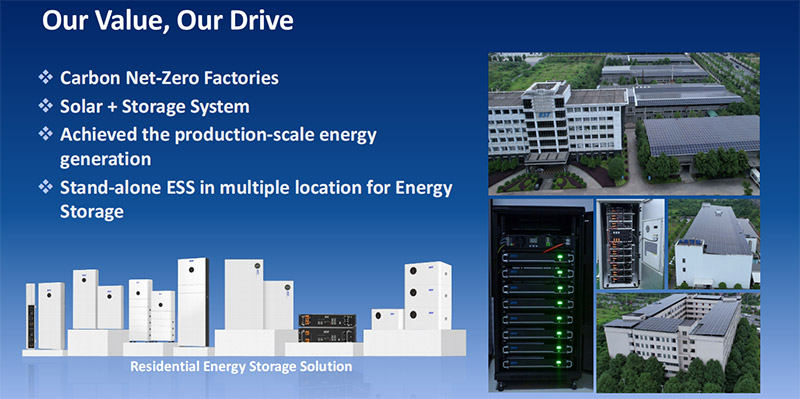
| Battery Storage System | Weight | Dimensions | Battery Type | Voltage Range/ Temperature Range |
| Wall Mounted Energy Storage | PB2-5.1 – 58 KG PB2-10.2 – 110 KG | PB2-5.1 – 480 x 700 x 145 mm PB2-10.2 – 520 x 1000 x 145 mm | Cobalt Free LFP Battery | PB2-5.1 – 43.2~56.8 V PB2-10.2 – 43.2 ~ 56.8 V |
| Rack Mounted Energy Storage | MD48-50-2U – ~24kg MD48-100-3U- 44kg | MD48-50-2U – 440 x 410 x 88.5 mm MD48-100-3U- 440 x 420 x 133 mm | LiFePo4 Battery | MD48-50-2U – 40.5~53.5 V MD48-100-3U- 43.2 ~ 56.8 V |
| Stacked Energy Storage Battery | PS-HV30- 40 PS-HV50- 52 PSS-TG-10- 155 | PS-HV30- 450x280x256.5mm PS-HV50- 520x330x256mm PSS-TG-10- 540x1350x260mm | Cobalt Free LiFePO4 Battery | PS-HV30- -10 ~ 50 °C PS-HV50- -10 ~ 50 °C PSS-TG-10- -10 ~ 50 °C |
Common Battery Technologies Used In Residential Energy System
Lithium Ion Batteries
The lithium Ion battery is a commonly used battery technology for residential energy systems. Additionally, this battery technology features high energy density and 95% energy efficiency. Moreover, these types of batteries require low to no maintenance.
Lead Acid Batteries
Lead acid batteries have an energy efficiency of 85% at maximum. In addition, they have a shorter lifespan and are cheap. However, you need to inspect these batteries regularly to ensure the best performance.
Sodium Sulfur Batteries
The sodium sulfur batteries have a high energy density of 110 wh/kg. Moreover, they have an energy efficiency of around 85%. Besides, this battery has a 15-year lifespan. So, it is suitable for residential home storage as it is also budget-friendly.
Redox Flow Batteries
The redox flow battery has an energy efficiency of 70 to 90%. Besides, this battery technology has a lifespan of 20 years, which is much longer than other ones. Additionally, these batteries are found at a very reasonable price.
Why To Choose Residential Storage Systems From BST Power?
BST Power is a residential storage system supplier with 22 years of experience in LFP battery technologies. We provide safe and efficient energy storage systems to consumers based on their requirements. Additionally, our ESS systems are certified under IEC regulations and UL standards.
Furthermore, we provide multiple residential storage system solutions to customers. They are, Wall Mounted Energy Storage, Rack Mounted Energy Storage, and Stacked Energy Storage Battery. These storage systems are easy to install, have a long lifespan, and are compatible with various inverters. So, if you want these products, reach out to us anytime and enjoy our premium service!
Final Words
Residential energy storage systems are an effective way to save your electricity bills and enjoy a full-time power supply. However, you need to choose this system based on your household’s energy consumption, battery life, and budget.
Therefore, BST Power is a reliable residential energy storage system supplier providing these products at a very reasonable rate. So, feel free to contact us if you require further information.
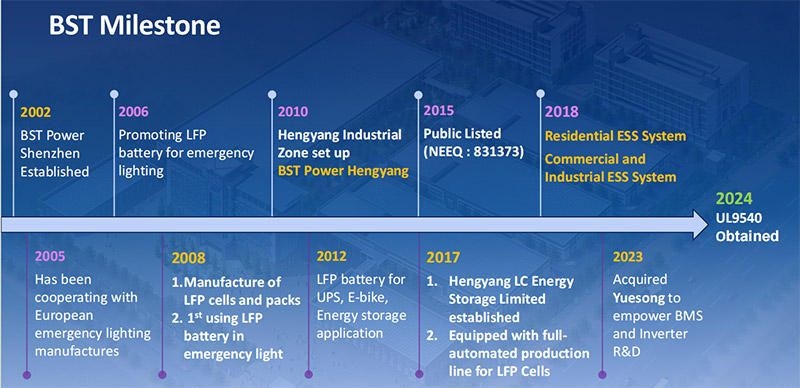
FAQs
Is the residential energy storage system cost-effective?
Yes, the residential energy storage system is mostly cost-effective. It gives you a consistent power supply and reduces your electricity bills.
How do batteries differ in residential energy storage?
Residential energy storage system’s battery technologies have different power efficiencies, lifespan, and density. Consequently, some batteries will be more efficient than others.
Does residential energy storage reduce emissions?
Yes. Residential energy storage emits 200 kg CO2 per kWh, which is a lot less than the emission of fossil fuels.
How much energy can a home energy storage system store?
The home energy storage system can store around 10 kWh at maximum.
What is the lifespan of a residential energy storage system?
The lifespan of a residential energy storage system depends on its batteries. In particular, the lifespan of these batteries is in the range of 10 to 20 years.
